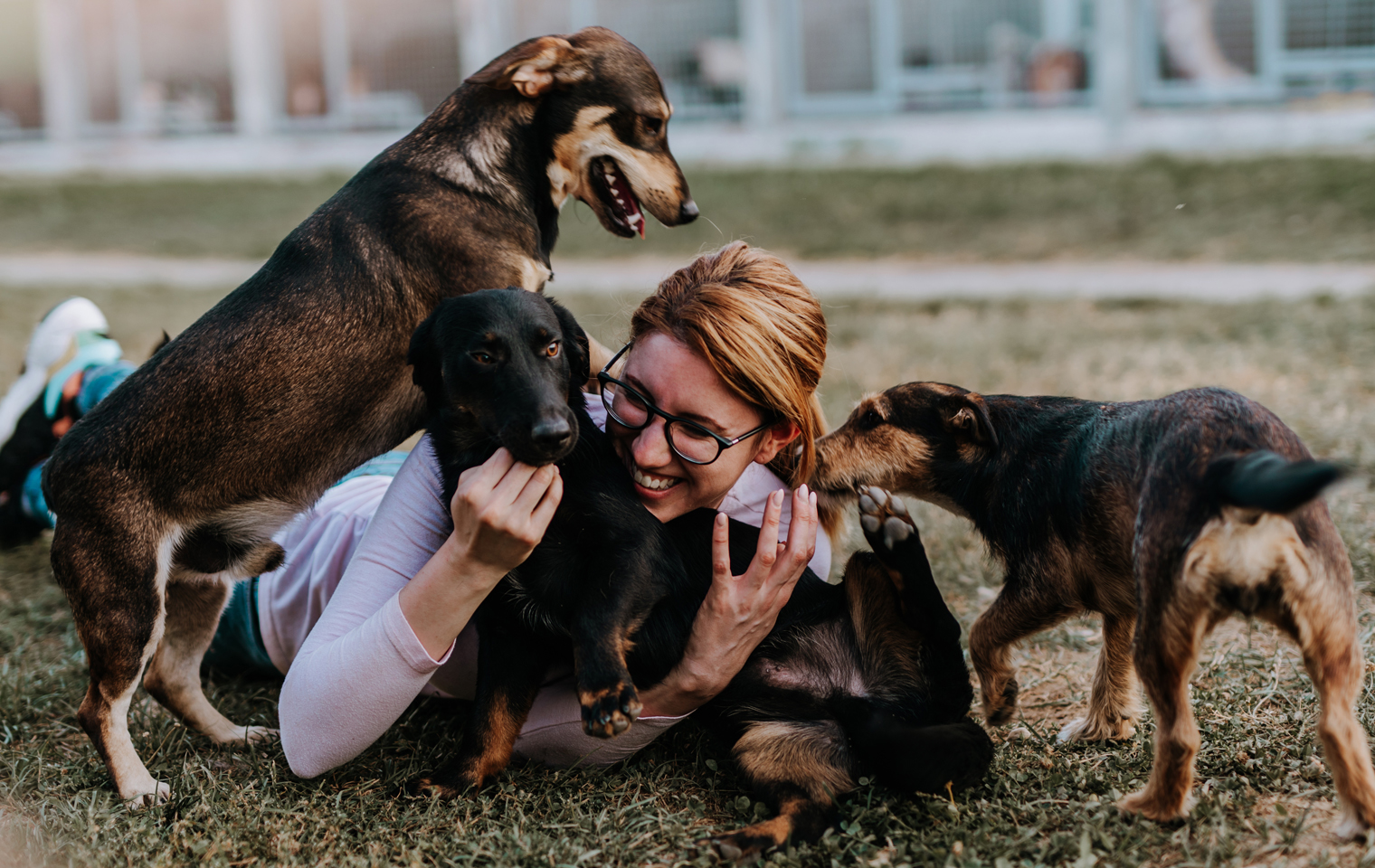Every dog has its day
Any time you mention wanting to add a dog to your family, you probably hear the words “adopt, don’t shop”, or have someone telling you about a rescue organisation you should approach. The sad truth is there are tens of thousands of dogs who are surrendered to shelters and animal rescue organisations every month, and “rescuing” is probably the more responsible thing to do.

Many people avoid adopting dogs from rescue organisations for one or more of the following reasons: they may feel nervous about adopting a shelter dog in case it has behavioural issues; they (or their children) really want a puppy, rather than a full-grown dog; or they want a specific breed. The good news is, none of these concerns need be an issue if you do your research. Firstly, not all dogs in a shelter have been abused or neglected – many simply get lost and end up far away from home, where they are picked up as stray and handed in, while others may have been surrendered because the owners moved or emigrated.
If you have your heart set on a puppy, phone around and ask local shelters if they have puppies, or to let you know when they do. Many shelters end up with puppies up for adoption, as the mom and litter may be surrendered. On the other hand, if you adopt a slightly older dog – even a year old, there’s a good chance you won’t have to go through the potty training and teething phase.

As for the third reason, if you are dead set on a specific breed, you may be surprised to learn that many shelters have all sorts of thoroughbred dogs looking for a good home. Not only that, but there are also many breed-specific rescue centres around the country, including for yorkies, spaniels, pugs, huskies, rottweilers and more, run by people who are passionate about the breed. Here are a few more great benefits to adopting, rather than shopping.
You are saving a life
Every dog at a rescue shelter deserves a second chance. When you adopt, you are not only given them a chance to have a safe and loving home, you are also either saving their life, or saving them from a life spent in a cage.
Never take a pet home on a whim. It shouldn’t be an impulsive decision, but rather carefully considered. After all, it could be your responsibility for up to 15 years.
You are helping to reduce overpopulation
When you rescue an animal from a shelter, it has already been spayed or neutered. That means there is one less dog on the streets continuing the cycle of overpopulation. You are also helping to reduce mass breeding - the more people adopt from shelters, the less demand there is for animals from “backyard breeders”.
You are more likely to adopt a healthy pet
No matter how the dog ended up at a shelter, it will most probably be looked after really well once there. It will likely have been checked by a vet, been sterilised and given its vaccinations.
When you rescue an animal from a shelter, it has already been spayed or neutered.
You will save money
Adopting a pet from a shelter is far less expensive than buying one from a breeder or pet store. Even better is that the money you pay is helping a non-profit organisation, which means more marketing can be done, more staff can be employed and more animals’ lives can be saved.
You can get to know more about the dog first
When you adopt, you have the opportunity to speak to the adoption centre first and explain your home environment and lifestyle. They can introduce you to a few suitable dogs and if there’s one you feel a real connection with, you can ask questions about the dog. Is it good with children, cats, people, other dogs? What is its background? Does it have any behavioural issues, such as aggression, anxiety, constantly trying to escape and so on? Are there any health issues you should be aware of? What are the dog’s needs in terms of food, exercise and fencing? You’ll want to know as much as possible, so that you can be informed and prepared, but most of all, so that you make the right choice. When you buy from a breeder, there is no way of knowing how the dog will turn out, or what health or behavioural issues it may have in its genetics.
Volunteer at a local shelter
If there is an animal shelter near you, perhaps you could consider volunteering to care for or walk dogs once a week or even once a month. This way, you get to experience many of the dogs on a personal level and who knows – you may even form a special bond and be “chosen” by one of them, rather than the other way around. It will also give you real insight into just how many dogs there are looking for homes and put you off supporting greedy backyard breeders.
You can foster first
Adopting a dog is obviously a big responsibility. When you buy from a breeder, you can only hope and pray it all works out. One of the many benefits to adopting a dog from a rescue or adoption centre is that you can agree to foster it for two or three weeks first, to make sure it fits in with your family and is the right breed, age and temperament for you. It also gives you the opportunity to ensure that everyone in your house is on board with the decision and understands the commitments of time, money and care. If you already have pets, you can foster as a way to see if the potential new dog is compatible with your pets. Fostering is a great way to gain first-hand experience - think of it like a test-drive.
Be realistic
If you have decided to adopt a pet dog from a rescue organisation, make sure you’ve thought it through and be realistic. Don’t get a dog because you “want” to start walking or running more and you think having a dog will motivate you. Likewise, if you are someone who goes away a lot, don’t think you’ll adapt and spend more time at home once you have a dog. Only adopt a pet based on your current lifestyle. If you plan to move overseas within the next few years, you might want to consider adopting an elderly dog. The same applies if the dog is for your kids – if they are in their early teens, consider that they may leave home when the dog still has eight or 10 years left to live.
Animal shelters and rescue groups are brimming with happy, healthy pets who are there through no fault of their own. They are just waiting for someone special to take them home and give them a happy life, full of love and adventure.



